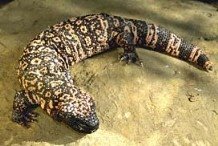New Mexico has a long history of providing men of valor to the U.S. military. Troops from New Mexico rode up San Juan Hill with Colonel Theodore Roosevelt in the Spanish-American War. New Mexico's National Guard (coastal artillery units) were at Bataan and in the Death March at the start of World War II, with many members remaining in Japanese Prisoner of War camps throughout the war. The famous Code Talkers were drawn from the Navajo Reservation of New Mexico and Arizona. Many others from New Mexico, whether in New Mexico by birth or assignment, have served with honor and valor in U.S. military actions from territorial days to the present.
From among New Mexico's more recently valorous men, allow me to bring two particularly outstanding men to your attention. One is from November of 2004 when Falluja was one of the most violent and dangerous places in Iraq. Private First Class Christopher Adlesperger was with one of the teams that moved in to pacify that city on November 10. His squad encountered a well-prepared machine gun position in one of the houses, which turned out to be an enemy command and control position. Adlesperger's response was to attack. He pinned down those at the gun position while he helped his wounded comrades up a stairway he cleared to a rooftop area from which they could be evacuated. From there, though wounded, he was able to use a grenade launcher to make holes in the building wall so he could fire on and destroy the enemy gun position. In doing so, he destroyed the last strongpoint in Fallujah's Jolan District. For this action, Adlesperger was awarded the Navy Cross and has been nominated for the Congressional Medal of Honor. He was subsequently promoted to Lance Corporal. LCPL Christopher Adlesperger was killed while leading a clearing mission on December 2, 2004. His Navy Cross was presented to his family on April 13, 2007. Chris Adlesperger graduated from Albuquerque's El Dorado High School.
In the same district of the same city a few months earlier, Captain Douglas Zembiec climbed up on a tank while under fire to guide it to where his men were pinned down. He coordinated the actions of his Marines from atop the tank while bullets and rocket-propelled grenades impacted all around him. He was already badly wounded before climbing onto the tank. And that wasn't the only time. Those who served with him call him a warrior without peer, not much different from those who led the Spartans into combat. He commanded incredible respect from his men, always leading from the front. That action was on April 26, the last day of major fighting before the Marines pulled out of the city under the terms of a cease-fire worked out by politicians and diplomats — a cease-fire that created the conditions under which PFC Adlesperger's unit would have to reenter the city six months later. Since that day in Fallujah, Zembiec has been promoted to Major and given more responsibility. MAJ Douglas Zembiec was reported killed last week in Iraq. As of yesterday, the Defense Department has not yet confirmed his death or provided information on its circumstances. Based on his history, I think we may assume he was taking the fight to the enemy, creating what he called "menacing delimmas for the enemy," when he died. Doug Zembiec graduated from Albuquerque's La Cueva High School where, as a junior, he brought the school its first ever state wrestling title. (He won again as a senior.) MAJ Zembiec was a graduate of the U.S. Naval Academy, and a veteran of combat in Kosovo and the Middle East.
The stories of men and women like these are usually not easily available or widely published. Stories on Major Zembiec and Lance Corporal Adlesperger were printed on the front page of the Albuquerque Journal only because they were from Albuquerque. I suspect some of the papers near Camp Pendleton were the only others to print them. The stories of their heroism apparently were not printed before their deaths. These stories can be found, but they commonly have to be explicitly sought out (as Blackfive frequently does).
And then there is the larger question: Where do we find such men? How do we grow or create them? I don't know the answer, and sometimes think the answer may be unknowable. But I do know we can all be very grateful for men and women like these — and many thousands of others. And we need to do better in telling their stories.


No comments:
Post a Comment